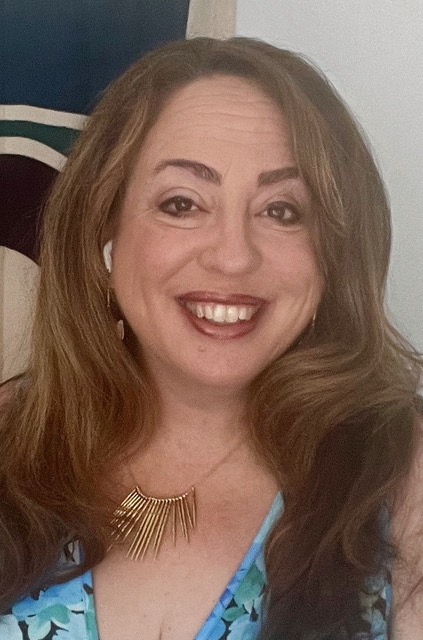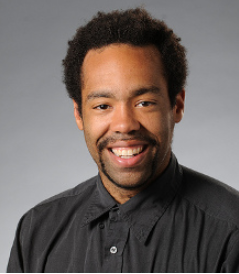- About MAA
- Membership
- MAA Publications
- Periodicals
- Blogs
- MAA Book Series
- MAA Press (an imprint of the AMS)
- MAA Notes
- MAA Reviews
- Mathematical Communication
- Information for Libraries
- Author Resources
- Advertise with MAA
- Meetings
- Competitions
- Programs
- Communities
- MAA Sections
- SIGMAA
- MAA Connect
- Students
- MAA Awards
- Awards Booklets
- Writing Awards
- Teaching Awards
- Service Awards
- Research Awards
- Lecture Awards
- Putnam Competition Individual and Team Winners
- D. E. Shaw Group AMC 8 Awards & Certificates
- Maryam Mirzakhani AMC 10 A Awards & Certificates
- Two Sigma AMC 10 B Awards & Certificates
- Jane Street AMC 12 A Awards & Certificates
- Akamai AMC 12 B Awards & Certificates
- High School Teachers
- News
You are here
Minority Serving Institutions Leadership Summit

With support from the National Science Foundation, the Mathematical Association of America is leading a series of online conversations for mathematics leaders, defined broadly to include department chairs, program directors, committee chairs, deans, etc, from minority serving institutions. Participants will (a) hear from experts on issues of common importance to mathematics curriculum and pedagogy; (b) brainstorm around challenges, solutions, and resources, with a seat at the table for guiding future work of the professional societies; and (c) join a national network of colleagues with similar interests.
Format Eligibility Upcoming Sessions
Format
The group will meet via Zoom four times in 90-minute sessions.The kickoff meeting took place during fall 2023 and set the agenda for the spring 2024 session. After input from the fall meeting, we present three more meetings in the winter (February/March), each with a theme that connects to items identified in the fall meeting. Check out the schedule for the spring 2024 sessions below.
Each session will include 30-40 minutes for expert presentation or panel discussion, and 30-40 minutes for break-out discussions and networking. In order to build strong networking connections, there will be a limited number of participants, so we ask applicants to answer a few questions to ensure we have a cohesive, committed group.
All participants from the fall meeting will have the opportunity – but no obligation – to attend the spring meetings themselves or nominate a colleague to attend in their place. The registration here applies to the fall meeting but also saves you a seat at the table for the spring meetings.
Eligibility
We welcome anyone holding a leadership position (department chair, program director, committee chair, dean, grant PI, etc.) in a mathematical sciences department at a minority serving institution listed in https://collegescorecard.ed.gov/. There is no fee charged for participants in the Summit, but we do ask you to respond to a few questions when you register, since space is very limited. The event receives financial support from the MAA OPEN Math project (NSF DUE-2111260).
Requested Registration Information
- Name, institutional email, institution
- Is this an MSI listed in https://collegescorecard.ed.gov/? Yes/No. (If no and you are still interested, please reach out to dougensley@gmail.com for a conversation.)
- Please describe your leadership position at your institution. The conversations at the workshop will center around services, activities, and support from the professional associations (like MAA) that will be impactful for the program you lead and/or the students you serve.
- Please write a brief statement (200 word limit) about what you hope to gain professionally by attending the summit. This information will help us structure the breakout / networking part of our activities. Recall that the goals of the Summit are for participants to (a) hear from experts on issues of common importance to mathematics curriculum and pedagogy; (b) brainstorm around challenges, solutions, and resources, with a seat at the table for guiding future work of the professional societies; and (c) join a national network of colleagues with similar interests.
When Will You Hear About Your Acceptance?
We will review applications and accept participants on a rolling basis until all slots are filled. You should hear back from MAA staff within 1 week of submitting your application.
Upcoming Sessions
Empowering Underrepresented Minority Students in Mathematics Through Culturally Relevant Pedagogy and Curriculum
February 22, 3:30-5:00 pm ET | Dr. Shelly M. Jones
This session aims to enhance participants' knowledge and ability to implement culturally relevant teaching practices in the mathematics classroom. Participants will explore the concept of mathematics identity as outlined by Aguirre et al. (2016) and key elements of culturally relevant mathematics pedagogy according to Matthews et al. (2023). The goal of the session is to empower educators to facilitate deeper learning and understanding of math by establishing meaningful connections to students’ personal experiences, communities, and the broader world.
About the Speaker
Dr. Shelly M. Jones, Professor at Central Connecticut State University, teaches undergraduate and graduate mathematics content, curriculum and STEM courses. A 30-year education veteran, she spent nine years in K-12 education and two decades as a professional development provider. You can see her CCSU TEDxTalk on YouTube where she talks about culturally relevant pedagogy in mathematics. Dr. Jones is a well-received keynote speaker in the mathematics education and equity in education spaces. She is the author of Women Who Count: Honoring African American Women Mathematicians and co-author of Engaging in Culturally Relevant Math Tasks: Fostering Hope. Dr. Jones is President of the Benjamin Banneker Association and is on the Education Advisory Board of Mathkind. Shelly’s accomplishments have earned her recognition by Mathematically Gifted & Black as a Black History Month Honoree.
Alternative Grading Strategies and Its Benefit to URM Students
March 7, 3:30-5:00 pm ET | Sharona Krinsky
Alternative Grading is an umbrella term referring to approaches to grading where grades reflect demonstrated student mastery of course content through the alignment of assessments to course learning outcomes with a built-in process for learning through feedback. In this presentation we will begin with a short exploration of the shortcomings of the traditional points-and-percentages grading system used throughout the US followed by an introduction to the principles of Alternative grading, the philosophy behind it, as well as a series of practical steps that need to be considered when thinking about redesigning a course to use Alternative Grading. Throughout this introduction, we will be referencing the ways in which a well designed alternatively graded course can assist with providing opportunities for success for a much wider array of students than the current system provides, particularly students that come from URM communities. From built-in flexibility in the demonstration of learning to far more transparency as well as grading policies that measure learning rather than compliance, Alternative Grading provides tremendous potential for equity and inclusion, improvements in the student-instructor relationship, and enhancements to the classroom experience for students and instructors alike, while exposing the historical development of traditional grading and its foundations in privilege and rank.
About the Speaker

Sharona Krinsky is an adjunct faculty member of the California State University Los Angeles Math Department and co-PI of the NSF-IUSE CLIMB-UP grant to redesign sophomore level engineering courses to utilize Alternative Grading. She currently coordinates the Quantitative Reasoning with Statistics general education course and teaches Linear Algebra and History of Math. She is the Executive Director of The Grading Conference, an annual online conference dedicated to supporting faculty in developing grading practices that support student learning, promote diversity, equity and inclusion in the classroom, and enhance student and faculty classroom experiences. She is also the co-host of The Grading Podcast, a podcast dedicated to exploring the impact of grading on student learning and working to improve student learning outcomes through improving grading practices.
Using Institutional Data to Guide Efforts Toward Equity and Inclusion
March 21, 3:30-5:00 pm ET | Dr. Rachel Funk and Dr. Kelsey Quaisley
During this session, participants will learn how and what institutional data can inform departmental change efforts to improve equity in undergraduate mathematics courses. This interactive session will give participants opportunities to learn about and discuss the use of data as it relates intended outcomes and actions to make progress on their goals. Hands-on activities include exploring a data dashboard relating student perceptions of instructional practices to various identity markers. Participants will also delve into research on effective departmental change efforts broadly, considering who is involved in the collection, analysis and use of institutional data. This session will include opportunities for individual and collective reflection and brainstorming of next steps.
About the Speakers

Dr. Rachel Funk (she/her) is a research scientist for the Center for Science, Mathematics, and Computer Education at the University of Nebraska-Lincoln. Her research interests include student partnerships in mathematics as a mechanism to support equity, professional development to support the use of equitable practices, and institutional change. She is a researcher on the ACT UP Math grant (DUE-2201486), which studies how networked improvement communities in mathematics departments are making data-informed decisions to to promote equity and critically transform introductory mathematics courses and programs.

Dr. Kelsey Quaisley (she/they) is a postdoctoral scholar in the Department of Mathematics at Oregon State University. Both her research and teaching interests include the preparation and support of equitable instructors of mathematics at the tertiary, secondary, and primary levels. Her research aims to understand the stories and identities of students, instructors, and institutional leaders in shaping each other’s experiences and learning. She is a researcher on the ELITE PD grant (DUE-2013563), which studies how a professional development program transforms mathematics graduate students’ teaching practices to be more engaging, equitable, and inclusive. She is also a researcher on the ACT UP Math grant (DUE-2201486), which studies how networked improvement communities in mathematics departments are making data-informed decisions to promote equity and critically transform introductory mathematics courses and programs.
Previous Sessions
November 3, 2:00-3:30pm ET
Keynote speaker, Dr. Aris Winger (Executive Director of NAM), will enlighten, inspire, and challenge leaders to step into the moment and take the seat at the table. The keynote will be followed by breakout sessions that will give participants an opportunity to network with colleagues, identify challenges, brainstorm solutions that will set the agenda for the spring sessions.
Keynote

Dr. Aris Winger
Revealing, Naming, and Breaking through Barriers and Challenges in Mathematics
This can be a moment of change. If we can come together, listen to each other, and find common ground, then we can use our skills as problem solvers to meet our challenges head on. In this first meeting of the MAA MSI Leadership Summit, we begin the process by discussing what some of these challenges are. All perspectives are welcome and needed – only through authentic sharing of all our voices can we find a path forward to make our discipline better for all.
About the Speaker
Dr. Aris Winger is the National Association of Mathematicians Executive Director and an assistant professor of mathematics at Georgia Gwinnett College. His areas of interest include finding equity in mathematics classrooms and culturally relevant pedagogy. He holds a BS in mathematics from Howard University and both an MS and PhD in mathematical sciences from Carnegie Mellon University. He co-hosts the podcast, Mathematically Uncensored, and co-authored the book, Asked and Answered: Dialogues on Advocating for Students of Color in Mathematics, both in collaboration with Dr. Pamela Harris.




